Piano Sheet Music
 "Rock & Roll is feeling, and after you know most of the basics ... chords, rhythm, scales and bends ... getting that feeling is just about the most important aspect of playing guitar" Eddie Van Halen
"Rock & Roll is feeling, and after you know most of the basics ... chords, rhythm, scales and bends ... getting that feeling is just about the most important aspect of playing guitar" Eddie Van Halen
Norah Jones
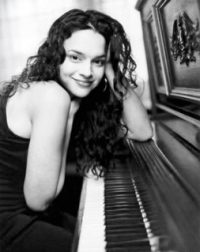
Norah Jones (born Geethali Norah Jones Shankar on March 30, 1979) is an American singer-songwriter, pianist, keyboardist, guitarist, and occasional actress of Anglo-American and Bengali descent. She is the daughter of famed sitar virtuoso Ravi Shankar and half-sister of sitarist Anoushka Shankar.
Jones' career was launched with her 2002 debut album Come Away with Me, an adult contemporary pop/vocal jazz album with a sensual, plaintive soul/folk/country tinge, that sold over twenty million copies worldwide and received five Grammy Awards, with Jones winning "Best New Artist". Her second album, Feels like Home, was released in 2004, clocking more than a million sales in the first week of U.S. release. In 2007, she released her third album, Not Too Late, which debuted at number one on the world charts. She has become one of the most successful recording artists of the decade, racking up sales of more than 16 million records in the US and 39 million records worldwide.
Jones' career was launched with her 2002 debut album Come Away with Me, an adult contemporary pop/vocal jazz album with a sensual, plaintive soul/folk/country tinge, that sold over twenty million copies worldwide and received five Grammy Awards, with Jones winning "Best New Artist". Her second album, Feels like Home, was released in 2004, clocking more than a million sales in the first week of U.S. release. In 2007, she released her third album, Not Too Late, which debuted at number one on the world charts. She has become one of the most successful recording artists of the decade, racking up sales of more than 16 million records in the US and 39 million records worldwide.
Mark Levine
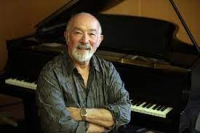
Mark Jay Levine (born October 4, 1938) is an American jazz pianist, trombonist, composer, author and educator.
Levine was born in Concord, New Hampshire, on October 4, 1938. He began playing the piano at the age of five and started trombone in his early teens. He attended Boston University, and graduated with a degree in music in 1960. He also studied privately with Jaki Byard, Hall Overton, and Herb Pomeroy.After graduating, Levine moved to New York, where he freelanced and then played with musicians including Houston Person (1966), Mongo Santamaría (1969–70), and Willie Bobo (1971–74). Levine then moved to San Francisco, and played there with Woody Shaw in 1975–76. Levine made his first recording as a leader for Catalyst Records in 1976. He also played with the Blue Mitchell/Harold Land Quintet (1975–79), Joe Henderson, Stan Getz, Bobby Hutcherson, Luis Gasca, and Cal Tjader (1979–83). From 1980 to 1983, he concentrated on valve trombone, but then returned to playing mainly the piano. He then led his own bands, and recorded for Concord as a leader in 1983 and 1985. From 1992 Levine was part of Henderson's big band. Levine created a new trio in 1996 and recorded it for his own, eponymous label. His Latin jazz group, Que Calor, was formed in 1997.
Levine was born in Concord, New Hampshire, on October 4, 1938. He began playing the piano at the age of five and started trombone in his early teens. He attended Boston University, and graduated with a degree in music in 1960. He also studied privately with Jaki Byard, Hall Overton, and Herb Pomeroy.After graduating, Levine moved to New York, where he freelanced and then played with musicians including Houston Person (1966), Mongo Santamaría (1969–70), and Willie Bobo (1971–74). Levine then moved to San Francisco, and played there with Woody Shaw in 1975–76. Levine made his first recording as a leader for Catalyst Records in 1976. He also played with the Blue Mitchell/Harold Land Quintet (1975–79), Joe Henderson, Stan Getz, Bobby Hutcherson, Luis Gasca, and Cal Tjader (1979–83). From 1980 to 1983, he concentrated on valve trombone, but then returned to playing mainly the piano. He then led his own bands, and recorded for Concord as a leader in 1983 and 1985. From 1992 Levine was part of Henderson's big band. Levine created a new trio in 1996 and recorded it for his own, eponymous label. His Latin jazz group, Que Calor, was formed in 1997.
Music theory

Music theory is the study of the practices and possibilities of music. The Oxford Companion to Music describes three interrelated uses of the term "music theory"
Traditional

josé Vianna Da Motta
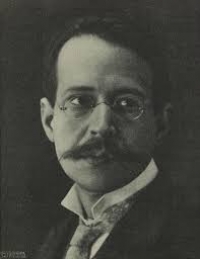
José Vianna da Motta was a Portuguese pianist, teacher, and composer. He was one of the last pupils of Franz Liszt. The José Vianna da Motta Music Competition was founded in 1957 in his honor.
Horace Silver
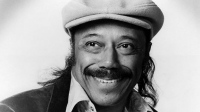
Horace Ward Martin Tavares Silver was an American jazz pianist, composer, and arranger, particularly in the hard bop style that he helped pioneer in the 1950s. After playing tenor saxophone and piano at school in Connecticut, Silver got his break on piano when his trio was recruited by Stan Getz in 1950.
Bob Dylan

Bob Dylan (born Robert Allen Zimmerman, May 24, 1941 in Duluth, Minnesota) is an American singer-songwriter, author, poet and disc jockey, who has been a major figure in popular music for five decades. Much of Dylan's most celebrated work dates from the 1960s, when he became an informal chronicler and a reluctant figurehead of American unrest. A number of his songs, such as "Blowin' in the Wind" and "The Times They Are a-Changin'",
Dylan's early lyrics incorporated politics, social commentary, philosophy and literary influences, defying existing pop music conventions and appealing widely to the counterculture. While expanding and personalizing musical styles, he has shown steadfast devotion to many traditions of American song, from folk, blues and country to gospel, rock and roll and rockabilly to English, Scottish and Irish folk music, and even jazz and swing.
Dylan performs with the guitar, piano and harmonica. Backed by a changing line-up of musicians, he has toured steadily since the late 1980s on what has been dubbed the "Never Ending Tour." Although his accomplishments as performer and recording artist have been central to his career, his songwriting is generally regarded as his greatest contribution.
During his career, Dylan has won many awards for his songwriting, performing, and recording. His records have earned Grammy, Golden Globe, and Academy Awards, and he has been inducted into the Rock and Roll Hall of Fame, Nashville Songwriters Hall of Fame and Songwriters Hall of Fame. In 1999, Dylan was included in the Time 100: The Most Important People of the Century, and in 2004, he was ranked number two in Rolling Stone magazine's list of "Greatest Artists of All Time."
In 2008, Dylan was awarded a Pulitzer Prize Special Citation for his "profound impact on popular music and American culture, marked by lyrical compositions of extraordinary poetic power."
Dylan's early lyrics incorporated politics, social commentary, philosophy and literary influences, defying existing pop music conventions and appealing widely to the counterculture. While expanding and personalizing musical styles, he has shown steadfast devotion to many traditions of American song, from folk, blues and country to gospel, rock and roll and rockabilly to English, Scottish and Irish folk music, and even jazz and swing.
Dylan performs with the guitar, piano and harmonica. Backed by a changing line-up of musicians, he has toured steadily since the late 1980s on what has been dubbed the "Never Ending Tour." Although his accomplishments as performer and recording artist have been central to his career, his songwriting is generally regarded as his greatest contribution.
During his career, Dylan has won many awards for his songwriting, performing, and recording. His records have earned Grammy, Golden Globe, and Academy Awards, and he has been inducted into the Rock and Roll Hall of Fame, Nashville Songwriters Hall of Fame and Songwriters Hall of Fame. In 1999, Dylan was included in the Time 100: The Most Important People of the Century, and in 2004, he was ranked number two in Rolling Stone magazine's list of "Greatest Artists of All Time."
In 2008, Dylan was awarded a Pulitzer Prize Special Citation for his "profound impact on popular music and American culture, marked by lyrical compositions of extraordinary poetic power."
I love you because

I Love You Because is a musical set in modern-day New York. It is based on Jane Austen's novel Pride and Prejudice. It features lyrics by Ryan Cunningham, set to music by Joshua SalzmanCunningham and Salzman first met in New York University's graduate program in musical theater writing, where they began writing the songs that became I Love You Because.
Yoko shimomura

Yoko Shimomura (下村 陽子 Shimomura Yōko?, born October 19, 1967) is a Japanese video game composer. She has been described as "the most famous female video game music composer in the world". She has worked in the video game music industry since graduating from Osaka College of Music in 1988. From then until 1993, she worked for Capcom, where she composed wholly or in part the scores for 17 games, including Final Fight and Street Fighter II.
J. S. Bach
Johann Sebastian Bach (21 March 1685, O.S.31 March 1685, N.S. – 28 July 1750, N.S.) was a German composer, organist, harpsichordist, violist, and violinist whose sacred and secular works for choir, orchestra, and solo instruments drew together the strands of the Baroque period and brought it to its ultimate maturity. Although he did not introduce new forms, he enriched the prevailing German style with a robust contrapuntal technique, an unrivalled control of harmonic and motivic organisation, and the adaptation of rhythms, forms and textures from abroad, particularly from Italy and France.
Revered for their intellectual depth, technical command and artistic beauty, Bach's works include the Brandenburg Concertos, the Goldberg Variations, the Partitas, The Well-Tempered Clavier, the Mass in B minor, the St Matthew Passion, the St John Passion, the Magnificat, A Musical Offering, The Art of Fugue, the English and French Suites, the Sonatas and Partitas for solo violin, the Cello Suites, more than 200 surviving cantatas, and a similar number of organ works, including the famous Toccata and Fugue in D minor and Passacaglia and Fugue in C minor, as well as the Great Eighteen Chorale Preludes and Organ Mass.
Bach's abilities as an organist were highly respected throughout Europe during his lifetime, although he was not widely recognised as a great composer until a revival of interest and performances of his music in the first half of the 19th century. He is now generally regarded as one of the main composers of the Baroque style, and as one of the greatest composers of all time.
Revered for their intellectual depth, technical command and artistic beauty, Bach's works include the Brandenburg Concertos, the Goldberg Variations, the Partitas, The Well-Tempered Clavier, the Mass in B minor, the St Matthew Passion, the St John Passion, the Magnificat, A Musical Offering, The Art of Fugue, the English and French Suites, the Sonatas and Partitas for solo violin, the Cello Suites, more than 200 surviving cantatas, and a similar number of organ works, including the famous Toccata and Fugue in D minor and Passacaglia and Fugue in C minor, as well as the Great Eighteen Chorale Preludes and Organ Mass.
Bach's abilities as an organist were highly respected throughout Europe during his lifetime, although he was not widely recognised as a great composer until a revival of interest and performances of his music in the first half of the 19th century. He is now generally regarded as one of the main composers of the Baroque style, and as one of the greatest composers of all time.
Guiseppe Verdi

Giuseppe Fortunino Francesco Verdi (Italian pronunciation: ; 10 October 1813 – 27 January 1901) was an Italian Romantic composer, mainly of opera. He was one of the most influential composers of the 19th century. His works are frequently performed in opera houses throughout the world and, transcending the boundaries of the genre, some of his themes have long since taken root in popular culture - such as "La donna è mobile" from Rigoletto, "Va, pensiero" (The Chorus of the Hebrew Slaves) from Nabucco, "Libiamo ne' lieti calici" (The Drinking Song) from La traviata and the "Grand March" from Aida. Although his work was sometimes criticized for using a generally diatonic rather than a chromatic musical idiom and having a tendency toward melodrama, Verdi’s masterworks dominate the standard repertoire a century and a half after their composition.
Verdi's predecessors who influenced his music were Rossini, Bellini, Giacomo Meyerbeer and, most notably, Gaetano Donizetti and Saverio Mercadante. With the exception of Otello and Aida, he was free of Wagner's influence. Although respectful of Gounod, Verdi was careful not to learn anything from the Frenchman whom many of Verdi's contemporaries regarded as the greatest living composer. Some strains in Aida suggest at least a superficial familiarity with the works of the Russian composer Mikhail Glinka, whom Franz Liszt, after his tour of the Russian Empire as a pianist, popularized in Western Europe.
Throughout his career, Verdi rarely utilised the high C in his tenor arias, citing the fact that the opportunity to sing that particular note in front of an audience distracts the performer before and after the note appears. However, he did provide high Cs to Duprez in Jérusalem and to Tamberlick in the original version of La forza del destino. The high C often heard in the aria Di quella pira does not appear in Verdi's score.
Verdi's predecessors who influenced his music were Rossini, Bellini, Giacomo Meyerbeer and, most notably, Gaetano Donizetti and Saverio Mercadante. With the exception of Otello and Aida, he was free of Wagner's influence. Although respectful of Gounod, Verdi was careful not to learn anything from the Frenchman whom many of Verdi's contemporaries regarded as the greatest living composer. Some strains in Aida suggest at least a superficial familiarity with the works of the Russian composer Mikhail Glinka, whom Franz Liszt, after his tour of the Russian Empire as a pianist, popularized in Western Europe.
Throughout his career, Verdi rarely utilised the high C in his tenor arias, citing the fact that the opportunity to sing that particular note in front of an audience distracts the performer before and after the note appears. However, he did provide high Cs to Duprez in Jérusalem and to Tamberlick in the original version of La forza del destino. The high C often heard in the aria Di quella pira does not appear in Verdi's score.
The Secret Garden

The Secret Garden is a musical based on the 1909 novel of the same name by Frances Hodgson Burnett. The musical's book and lyrics are by Marsha Norman, with music by Lucy Simon. It premiered on Broadway at the St. James Theatre on 25 April 1991 and closed on 3 January 1993 after 709 performances.
The musical, set in 1906, tells of a young English girl, Mary, who is forced to move to England from colonial India when her parents die in a cholera outbreak. There she lives with her emotionally stunted Uncle Archibald and her invalid cousin. Discovering a hidden and neglected garden, and bravely overcoming dark forces, she and a young gardener bring it back to life at the same time as she brings new life to her cousin and uncle.
The Secret Garden garnered the 1991 Tony Awards for Best Book of a Musical, Best Featured Actress in a Musical (Daisy Eagan), and Best Scenic Design (Heidi Landesman). The set resembled an enormous Victorian toy theatre with pop-out figures, large paper dolls, and Joseph Cornell-like collage elements.
The musical, set in 1906, tells of a young English girl, Mary, who is forced to move to England from colonial India when her parents die in a cholera outbreak. There she lives with her emotionally stunted Uncle Archibald and her invalid cousin. Discovering a hidden and neglected garden, and bravely overcoming dark forces, she and a young gardener bring it back to life at the same time as she brings new life to her cousin and uncle.
The Secret Garden garnered the 1991 Tony Awards for Best Book of a Musical, Best Featured Actress in a Musical (Daisy Eagan), and Best Scenic Design (Heidi Landesman). The set resembled an enormous Victorian toy theatre with pop-out figures, large paper dolls, and Joseph Cornell-like collage elements.
Theron C. Bennett
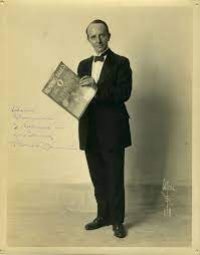
Theron Catlen Bennett (July 9, 1879 – April 6, 1937) was an American pianist, ragtime composer, and music publisher.
Born in Pierce City, Missouri, he graduated in 1902 from the school which is now New Mexico State University. He worked for the Victor Kramer Co., which published some of his early compositions. He became a music publisher, and later owner of a chain of music stores. At one time he ran the Dutch Mill Cafe, a famous meeting place for musicians and artists in Denver, Colorado. In the early 1920s, he lived in the Los Angeles area, where he formed a jazz band made up of USC students. He died in Los Angeles.
Born in Pierce City, Missouri, he graduated in 1902 from the school which is now New Mexico State University. He worked for the Victor Kramer Co., which published some of his early compositions. He became a music publisher, and later owner of a chain of music stores. At one time he ran the Dutch Mill Cafe, a famous meeting place for musicians and artists in Denver, Colorado. In the early 1920s, he lived in the Los Angeles area, where he formed a jazz band made up of USC students. He died in Los Angeles.
Eddie Espinosa

EDDIE ESPINOSA. Eddie has had a rich experience in worship leading, songwriting and recording with the Maranatha Praise Bands and with the Anaheim Vineyard. Change my heart oh God. Make it ever true. Change my heart oh God.
Leona Lewis

Leona Louise Lewis (born 3 April 1985) is an English pop and R&B singer-songwriter, and the winner of the third series of UK television talent show The X Factor. Her UK debut single, "A Moment Like This", broke a world record after it was downloaded over 50,000 times within 30 minutes.
Her second single, "Bleeding Love", was the biggest-selling single of 2007 in the UK, topped over thirty national singles charts and became a number one single on the first week in France and number one in the United States.
Her debut album, Spirit, was released in Europe in November 2007, and became the fastest-selling debut album ever in both the United Kingdom and Ireland. Released in North America in April 2008, Spirit debuted at number one on the US Billboard 200 chart and made Lewis the first British solo artist to top the chart with a debut album.
With her album reaching number one in at least three continents and nine countries, Lewis has had one of the most successful launches of any television talent show contestant ever.
Her second single, "Bleeding Love", was the biggest-selling single of 2007 in the UK, topped over thirty national singles charts and became a number one single on the first week in France and number one in the United States.
Her debut album, Spirit, was released in Europe in November 2007, and became the fastest-selling debut album ever in both the United Kingdom and Ireland. Released in North America in April 2008, Spirit debuted at number one on the US Billboard 200 chart and made Lewis the first British solo artist to top the chart with a debut album.
With her album reaching number one in at least three continents and nine countries, Lewis has had one of the most successful launches of any television talent show contestant ever.
Igor Stravinsky

Igor Fyodorovich Stravinsky (17 June 1882 – 6 April 1971) was a Russian-born, naturalised French, later naturalised American composer, pianist, and conductor.
He is widely acknowledged as one of the most important and influential composers of 20th century music. He was a quintessentially cosmopolitan Russian who was named by Time magazine as one of the 100 most influential people of the century. He became a naturalised French citizen in 1934 and a naturalized US citizen in 1945. In addition to the recognition he received for his compositions, he also achieved fame as a pianist and a conductor, often at the premieres of his works.
Stravinsky's compositional career was notable for its stylistic diversity. He first achieved international fame with three ballets commissioned by the impresario Sergei Diaghilev and performed by Diaghilev's Ballets Russes (Russian Ballets): The Firebird (1910), Petrushka (1911/1947), and The Rite of Spring (1913). The Rite, whose premiere provoked a riot, transformed the way in which subsequent composers thought about rhythmic structure, and was largely responsible for Stravinsky's enduring reputation as a musical revolutionary, pushing the boundaries of musical design.
After this first Russian phase Stravinsky turned to neoclassicism in the 1920s. The works from this period tended to make use of traditional musical forms (concerto grosso, fugue, symphony), frequently concealed a vein of intense emotion beneath a surface appearance of detachment or austerity, and often paid tribute to the music of earlier masters, for example J.S. Bach and Tchaikovsky.
In the 1950s he adopted serial procedures, using the new techniques over his last twenty years. Stravinsky's compositions of this period share traits with examples of his earlier output: rhythmic energy, the construction of extended melodic ideas out of a few two- or three-note cells, and clarity of form, of instrumentation, and of utterance.
He also published a number of books throughout his career, almost always with the aid of a collaborator, sometimes uncredited. In his 1936 autobiography, Chronicles of My Life, written with the help of Walter Nouvel, Stravinsky included his well-known statement that "music is, by its very nature, essentially powerless to express anything at all." With Alexis Roland-Manuel and Pierre Souvtchinsky he wrote his 1939–40 Harvard University Charles Eliot Norton Lectures, which were delivered in French and later collected under the title Poétique musicale in 1942 (translated in 1947 as Poetics of Music). Several interviews in which the composer spoke to Robert Craft were published as Conversations with Igor Stravinsky. They collaborated on five further volumes over the following decade.
He is widely acknowledged as one of the most important and influential composers of 20th century music. He was a quintessentially cosmopolitan Russian who was named by Time magazine as one of the 100 most influential people of the century. He became a naturalised French citizen in 1934 and a naturalized US citizen in 1945. In addition to the recognition he received for his compositions, he also achieved fame as a pianist and a conductor, often at the premieres of his works.
Stravinsky's compositional career was notable for its stylistic diversity. He first achieved international fame with three ballets commissioned by the impresario Sergei Diaghilev and performed by Diaghilev's Ballets Russes (Russian Ballets): The Firebird (1910), Petrushka (1911/1947), and The Rite of Spring (1913). The Rite, whose premiere provoked a riot, transformed the way in which subsequent composers thought about rhythmic structure, and was largely responsible for Stravinsky's enduring reputation as a musical revolutionary, pushing the boundaries of musical design.
After this first Russian phase Stravinsky turned to neoclassicism in the 1920s. The works from this period tended to make use of traditional musical forms (concerto grosso, fugue, symphony), frequently concealed a vein of intense emotion beneath a surface appearance of detachment or austerity, and often paid tribute to the music of earlier masters, for example J.S. Bach and Tchaikovsky.
In the 1950s he adopted serial procedures, using the new techniques over his last twenty years. Stravinsky's compositions of this period share traits with examples of his earlier output: rhythmic energy, the construction of extended melodic ideas out of a few two- or three-note cells, and clarity of form, of instrumentation, and of utterance.
He also published a number of books throughout his career, almost always with the aid of a collaborator, sometimes uncredited. In his 1936 autobiography, Chronicles of My Life, written with the help of Walter Nouvel, Stravinsky included his well-known statement that "music is, by its very nature, essentially powerless to express anything at all." With Alexis Roland-Manuel and Pierre Souvtchinsky he wrote his 1939–40 Harvard University Charles Eliot Norton Lectures, which were delivered in French and later collected under the title Poétique musicale in 1942 (translated in 1947 as Poetics of Music). Several interviews in which the composer spoke to Robert Craft were published as Conversations with Igor Stravinsky. They collaborated on five further volumes over the following decade.
Prokofiev

Sergei Sergeyevich Prokofiev (Russian: Сергей Сергеевич Прокофьев; Ukrainian: Сергій Сергійович Прокоф'єв) (27 April 1891 – 5 March 1953) was a Russian composer, pianist and conductor who mastered numerous musical genres and came to be admired as one of the greatest composers of the 20th century.
Prokofiev was a soloist with the London Symphony Orchestra, conducted by Piero Coppola, in the first recording of his Piano Concerto No. 3, recorded in London by His Master's Voice in June 1932. Prokofiev also recorded some of his solo piano music for HMV in Paris in February 1935; these recordings were issued on CD by Pearl and Naxos. In 1938, he conducted the Moscow Philharmonic Orchestra in a recording of the second suite from his Romeo and Juliet ballet; this performance was also later released on LP and CD. Another reported recording with Prokofiev and the Moscow Philharmonic was of the First Violin Concerto with David Oistrakh as soloist; Everest Records later released this recording on an LP.
Prokofiev was a soloist with the London Symphony Orchestra, conducted by Piero Coppola, in the first recording of his Piano Concerto No. 3, recorded in London by His Master's Voice in June 1932. Prokofiev also recorded some of his solo piano music for HMV in Paris in February 1935; these recordings were issued on CD by Pearl and Naxos. In 1938, he conducted the Moscow Philharmonic Orchestra in a recording of the second suite from his Romeo and Juliet ballet; this performance was also later released on LP and CD. Another reported recording with Prokofiev and the Moscow Philharmonic was of the First Violin Concerto with David Oistrakh as soloist; Everest Records later released this recording on an LP.
Ernesto Lecuona
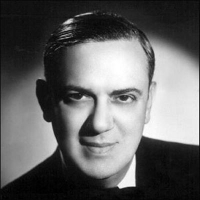
Ernesto Lecuona y Casado (Spanish pronunciation: ; August 6, 1895 – November 29, 1963) was a Cuban composer and pianist of worldwide fame. He composed over six hundred pieces, mostly in the Cuban vein, and was a pianist of exceptional skill. His father was Canarian and his mother was Cuban.
Bleach

Ichigo Kurosaki never asked for the ability to see ghosts -- he was born with the gift. When his family is attacked by a Hollow -- a malevolent lost soul -- Ichigo becomes a Soul Reaper, dedicating his life to protecting the innocent and helping the tortured spirits themselves find peace.
José María Cano

José Cano Andrés is a Spanish visual artist, musician, composer, and record producer. From 1982 to 1998, he was a member and principal composer of the Spanish pop-rock band Mecano. Since 1998, he works primarily in the visual arts.
Oskar Rieding

Oskar Rieding was a German violinist, teacher of music, and composer. Born: 1840, Northern Germany
Died: 1918, Celje, Slovenia Books: Air Varie Op. 23 No. 3: Violin & Piano,
Died: 1918, Celje, Slovenia Books: Air Varie Op. 23 No. 3: Violin & Piano,
Handoyo
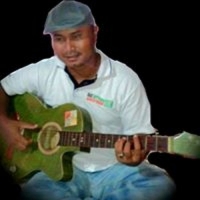
Steve Handoyo Musical artist Songs Indonesia Tetap Merdeka Indonesia Raya · 2014 Bengawan Solo Original Indonesian Bamboo Music - Angklung & Orchestra · 2001 Aryat Instrumental Romantika Tempo Doeloe,
Far East Movement

Far East Movement is an Asian-American hip hop and electronic music group based in Los Angeles. The group formed in 2003 and as of August 2018 consists of Kev Nish, Prohgress and DJ Virman J-Splif.
Rodgers and Hammerstein
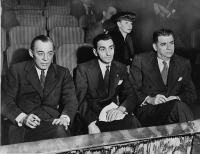
Richard Rodgers (1902 – 1979) and Oscar Hammerstein II (1895 – 1960) were a well-known American songwriting duo, usually referred to as Rodgers and Hammerstein. They created a string of popular Broadway musicals in the 1940s and 1950s during what is considered the golden age of the medium. With Rodgers composing the music and Hammerstein adding the lyrics, five of their shows, Oklahoma!, Carousel, South Pacific, The King and I, and The Sound of Music, were outstanding successes. In all, among the many accolades that their shows (and their film versions) garnered were thirty-four Tony Awards, fifteen Academy Awards, the Pulitzer Prize, and two Grammys.
Chopin

Frédéric Chopin (1 March 1810 – 17 October 1849) was a Polish composer and virtuoso pianist of the Romantic period. He is widely regarded as the greatest Polish composer, and ranks as one of music's greatest tone poets.
He was born in the village of Żelazowa Wola, in the Duchy of Warsaw, to a Polish mother and French-expatriate father, and in his early life was regarded as a child-prodigy pianist. In November 1830, at the age of 20, Chopin went abroad; following the suppression of the Polish November Uprising of 1830–31, he became one of many expatriates of the Polish "Great Emigration."
In Paris, he made a comfortable living as a composer and piano teacher, while giving few public performances. A Polish patriot,
Chopin's extant compositions were written primarily for the piano as a solo instrument. Though technically demanding, Chopin's style emphasizes nuance and expressive depth rather than virtuosity. Chopin invented musical forms such as the ballade and was responsible for major innovations in forms such as the piano sonata, waltz, nocturne, étude, impromptu and prelude. His works are mainstays of Romanticism in 19th-century classical music.
He was born in the village of Żelazowa Wola, in the Duchy of Warsaw, to a Polish mother and French-expatriate father, and in his early life was regarded as a child-prodigy pianist. In November 1830, at the age of 20, Chopin went abroad; following the suppression of the Polish November Uprising of 1830–31, he became one of many expatriates of the Polish "Great Emigration."
In Paris, he made a comfortable living as a composer and piano teacher, while giving few public performances. A Polish patriot,
Chopin's extant compositions were written primarily for the piano as a solo instrument. Though technically demanding, Chopin's style emphasizes nuance and expressive depth rather than virtuosity. Chopin invented musical forms such as the ballade and was responsible for major innovations in forms such as the piano sonata, waltz, nocturne, étude, impromptu and prelude. His works are mainstays of Romanticism in 19th-century classical music.
Alejandro Sanz

Alejandro Sanz, born Alejandro Sánchez Pizarro on December 18, 1968 in Madrid, is an Award winning, Spanish pop/ballad musician and singer-songwriter who has won a record 17 Latin Grammy´s, more than any other Spanish musician in history.
Sanz has won a total of 17 Grammys Awards (2 Regular Grammy Award and 15 Latin Grammy Awards) and has sold more than 25 million albums worldwide.
Sanz has won a total of 17 Grammys Awards (2 Regular Grammy Award and 15 Latin Grammy Awards) and has sold more than 25 million albums worldwide.
Bernice Petkere

Bernice Petkere (August 11, 1901 – January 7, 2000) was an American songwriter. She was dubbed the "Queen of Tin Pan Alley" by Irving Berlin.Born in Chicago, Illinois, United States, she began performing in vaudeville as a child. "Starlight (Help Me Find The One I Love)" (1931), her first published song, was recorded by Bing Crosby. She also wrote radio themes for CBS. Other notable songs include "Lullaby of the Leaves", "The Lady I Love", "Close Your Eyes" (1933), "My River Home", "By a Rippling Stream", "Stay Out of My Dreams", "A Mile a Minute" and "It's All So New to Me", which was featured in the Joan Crawford film The Ice Follies of 1939 (MGM, 1939).
Tchaikovsky

Pyotr Il'yich Tchaikovsky (May 7 1840 â November 6 1893) was a Russian composer of the Romantic era. While not part of the nationalistic music group known as "The Five", Tchaikovsky wrote music which, in the opinion of Harold Schonberg, was distinctly Russian: plangent, introspective, with modally-inflected melody and harmony.
Aesthetically, Tchaikovsky remained open to all aspects of Saint Petersburg musical life. He was impressed by Serov and Balakirev as well as the classical values upheld by the conservatory. Both the progressive and conservative camps in Russian music at the time attempted to win him over. Tchaikovsky charted his compositional course between these two factions, retaining his individuality as a composer as well as his Russian identity. In this he was influenced by the ideals of his teacher Nikolai Rubinstein and Nikolai's brother Anton.
Tchaikovsky's musical cosmopolitanism led him to be favored by many Russian music-lovers over the "Russian" harmonies and styles of Mussorgsky, Borodin and Rimsky-Korsakov.
Nonetheless he frequently adapted Russian traditional melodies and dance forms in his music, which enhanced his success in his home country. The success in St. Petersburg at the premiere of his Third Orchestral Suite may have been due in large part to his concluding the work with a polonaise. He also used a polonaise for the final movement of his Third Symphony.
Aesthetically, Tchaikovsky remained open to all aspects of Saint Petersburg musical life. He was impressed by Serov and Balakirev as well as the classical values upheld by the conservatory. Both the progressive and conservative camps in Russian music at the time attempted to win him over. Tchaikovsky charted his compositional course between these two factions, retaining his individuality as a composer as well as his Russian identity. In this he was influenced by the ideals of his teacher Nikolai Rubinstein and Nikolai's brother Anton.
Tchaikovsky's musical cosmopolitanism led him to be favored by many Russian music-lovers over the "Russian" harmonies and styles of Mussorgsky, Borodin and Rimsky-Korsakov.
Nonetheless he frequently adapted Russian traditional melodies and dance forms in his music, which enhanced his success in his home country. The success in St. Petersburg at the premiere of his Third Orchestral Suite may have been due in large part to his concluding the work with a polonaise. He also used a polonaise for the final movement of his Third Symphony.
Robert Miles

Robert Miles (born Roberto Concina, November 3, 1969, in Neuchâtel) is a Swiss-Italian record producer, composer and musician in trance and ambient music.
Robert Miles was born to Italian immigrants Antonietta and Albino Concina in Neuchâtel, Switzerland.
Although not a musical prodigy, Miles became proficient at playing the piano during his youth in Friuli, in the small town of Fagagna, where his family moved when he was still a young boy, and has been in the music scene since 1988. He worked as DJ in some Italian clubs and in 1990, he used his savings to establish his own studio and bought some second-hand equipment. However, his initial compositions went unnoticed.
In 1994, Miles wrote his most famous dream trance work, Children. The single picked up steam slowly, and within two weeks of its official release in 1995, had sold more than 30,000 copies all over Europe and topped the charts in many countries. It earned Miles platinum records in the UK and Germany and gold records in other countries. While Children did not reach a Top 20 status on the US charts, it remained popular with the DJs. In December 2004, it reached new audiences in the UK when it was sampled on a collaboration between Angel City and Ministry of Sound, entitled Do You Know?, which reached the Top 10 in the UK.
Miles's next single was Fable, with vocals by Fiorella Quinn. Part of this song was used in the theatrical trailer for the US movie, Ever After starring Drew Barrymore and Dougray Scott. His debut album Dreamland was released on June 7, 1996 in Europe, and released a few days later in the United States, with a new track, "One and One", sung by Maria Nayler and written by songwriters Billy Steinberg, Rick Nowels and Marie Claire D'ubaldo. This new track became very popular and was later released as a single in the U.S. and Germany. At the end of 1996, Miles released a new version of Dreamland, called Dreamland - The Winter Edition, containing the track "One and One", which wasn't released in the European version of Dreamland. "One and One" was originally written for a Polish leading female artist Edyta Górniak. She recorded it a year later on her international debut album Edyta Gorniak.
On November 27, 1997, Miles released another track, "Freedom", which was one of the key tracks on the album 23am featuring vocals provided by Kathy Sledge of Sister Sledge. Containing a different feel from the previously light Dreamland, 23am incorporated more lyrics-driven songs than its predecessor while maintaining Miles' trademark piano sound from the first album.
Miles remained under the radar until June 11, 2001, when his new album, Organik, was released on both vinyl and CD. Featuring the new single "Paths", it was considered by many fans to be a break from the style that Miles had pioneered in his first two albums.
In 2003, an album mainly remixes of many of the songs found on Organik was released. The album, appropriately titled Organik Remixes, contained remixes by the winners of the remixing contest held on Robert Miles' website, as well as remixes from well known artists such as The Future Sound of London, whom he has stated are a major influence on his music. The album also had one new track, "Bhairav", which featured the vocals of Amelia Cuni.
In late 2003, Miles moved from his home in London to Los Angeles. He started his own production label, Salt Records, and in 2004 released an album created under a partnership with Trilok Gurtu, entitled Miles Gurtu.
Robert Miles was born to Italian immigrants Antonietta and Albino Concina in Neuchâtel, Switzerland.
Although not a musical prodigy, Miles became proficient at playing the piano during his youth in Friuli, in the small town of Fagagna, where his family moved when he was still a young boy, and has been in the music scene since 1988. He worked as DJ in some Italian clubs and in 1990, he used his savings to establish his own studio and bought some second-hand equipment. However, his initial compositions went unnoticed.
In 1994, Miles wrote his most famous dream trance work, Children. The single picked up steam slowly, and within two weeks of its official release in 1995, had sold more than 30,000 copies all over Europe and topped the charts in many countries. It earned Miles platinum records in the UK and Germany and gold records in other countries. While Children did not reach a Top 20 status on the US charts, it remained popular with the DJs. In December 2004, it reached new audiences in the UK when it was sampled on a collaboration between Angel City and Ministry of Sound, entitled Do You Know?, which reached the Top 10 in the UK.
Miles's next single was Fable, with vocals by Fiorella Quinn. Part of this song was used in the theatrical trailer for the US movie, Ever After starring Drew Barrymore and Dougray Scott. His debut album Dreamland was released on June 7, 1996 in Europe, and released a few days later in the United States, with a new track, "One and One", sung by Maria Nayler and written by songwriters Billy Steinberg, Rick Nowels and Marie Claire D'ubaldo. This new track became very popular and was later released as a single in the U.S. and Germany. At the end of 1996, Miles released a new version of Dreamland, called Dreamland - The Winter Edition, containing the track "One and One", which wasn't released in the European version of Dreamland. "One and One" was originally written for a Polish leading female artist Edyta Górniak. She recorded it a year later on her international debut album Edyta Gorniak.
On November 27, 1997, Miles released another track, "Freedom", which was one of the key tracks on the album 23am featuring vocals provided by Kathy Sledge of Sister Sledge. Containing a different feel from the previously light Dreamland, 23am incorporated more lyrics-driven songs than its predecessor while maintaining Miles' trademark piano sound from the first album.
Miles remained under the radar until June 11, 2001, when his new album, Organik, was released on both vinyl and CD. Featuring the new single "Paths", it was considered by many fans to be a break from the style that Miles had pioneered in his first two albums.
In 2003, an album mainly remixes of many of the songs found on Organik was released. The album, appropriately titled Organik Remixes, contained remixes by the winners of the remixing contest held on Robert Miles' website, as well as remixes from well known artists such as The Future Sound of London, whom he has stated are a major influence on his music. The album also had one new track, "Bhairav", which featured the vocals of Amelia Cuni.
In late 2003, Miles moved from his home in London to Los Angeles. He started his own production label, Salt Records, and in 2004 released an album created under a partnership with Trilok Gurtu, entitled Miles Gurtu.
Wicked

Wicked is a musical with songs and lyrics by Stephen Schwartz and a book by Winnie Holzman. The story is based on the best-selling novel Wicked: The Life and Times of the Wicked Witch of the West by Gregory Maguire, a parallel novel of L. Frank Baum's classic story The Wonderful Wizard of Oz from the perspective of the witches of the Land of Oz.
Wicked tells the story of Elphaba, the future Wicked Witch of the West and her relationship with Glinda, the Good Witch of the North. Their friendship struggles through their opposing personalities and viewpoints, rivalry over the same love-interest, their reactions to the Wizard's corrupt government, and, ultimately, Elphaba's public fall from grace. The plot is set mostly before Dorothy's arrival from Kansas, and includes several references to well-known scenes and dialogue in the 1939 film The Wizard of Oz.
The musical debuted on Broadway on October 30, 2003. It is produced by Universal Pictures and directed by Joe Mantello, with musical staging by Wayne Cilento. Its original stars were Idina Menzel as Elphaba, Kristin Chenoweth as Glinda, and Joel Grey as the Wizard. Although the production received mixed reviews and was panned by The New York Times, it has proved to be a favorite among patrons. The Broadway production's success spawned productions in Chicago, Los Angeles, London's West End, Tokyo, Melbourne, and Stuttgart, along with two North American tours that have visited over 30 cities in Canada and the United States.
The score of Wicked is heavily thematic, bearing in some senses more resemblance to a film score than a musical's score. While many musicals' scores develop new motifs and melodies for each song with little overlap, Schwartz integrated a handful of leitmotifs throughout the production. A cast recording of the original Broadway production was released on December 16, 2003, by Universal Music. All of the songs featured on stage are present on the recording with the exception of "The Wizard And I (Reprise)" and "The Wicked Witch of the East". The short reprise of "No One Mourns The Wicked" that opens Act II is attached to the beginning of "Thank Goodness". The music was arranged by Stephen Oremus, who was also the conductor and director, and James Lynn Abbott, with orchestrations by William David Brohn. The recording received the Grammy Award for Best Musical Show Album in 2005 and was certified platinum by the RIAA on November 30, 2006.
Wicked tells the story of Elphaba, the future Wicked Witch of the West and her relationship with Glinda, the Good Witch of the North. Their friendship struggles through their opposing personalities and viewpoints, rivalry over the same love-interest, their reactions to the Wizard's corrupt government, and, ultimately, Elphaba's public fall from grace. The plot is set mostly before Dorothy's arrival from Kansas, and includes several references to well-known scenes and dialogue in the 1939 film The Wizard of Oz.
The musical debuted on Broadway on October 30, 2003. It is produced by Universal Pictures and directed by Joe Mantello, with musical staging by Wayne Cilento. Its original stars were Idina Menzel as Elphaba, Kristin Chenoweth as Glinda, and Joel Grey as the Wizard. Although the production received mixed reviews and was panned by The New York Times, it has proved to be a favorite among patrons. The Broadway production's success spawned productions in Chicago, Los Angeles, London's West End, Tokyo, Melbourne, and Stuttgart, along with two North American tours that have visited over 30 cities in Canada and the United States.
The score of Wicked is heavily thematic, bearing in some senses more resemblance to a film score than a musical's score. While many musicals' scores develop new motifs and melodies for each song with little overlap, Schwartz integrated a handful of leitmotifs throughout the production. A cast recording of the original Broadway production was released on December 16, 2003, by Universal Music. All of the songs featured on stage are present on the recording with the exception of "The Wizard And I (Reprise)" and "The Wicked Witch of the East". The short reprise of "No One Mourns The Wicked" that opens Act II is attached to the beginning of "Thank Goodness". The music was arranged by Stephen Oremus, who was also the conductor and director, and James Lynn Abbott, with orchestrations by William David Brohn. The recording received the Grammy Award for Best Musical Show Album in 2005 and was certified platinum by the RIAA on November 30, 2006.
Vanessa Carlton
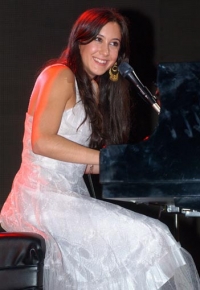
Vanessa Lee Carlton (born August 16, 1980) is an American soft rock/Piano pop singer, songwriter, and pianist best known for the Billboard top five, Grammy-nominated single "A Thousand Miles" from her debut album, Be Not Nobody which was released April 30, 2002, and certified platinum in the U.S.
Her music, along with that of her contemporary Michelle Branch to whom she is sometimes compared, has had an influence on female solo pop singer-songwriters in the 21st century, including Kate Voegele, Lights, Sara Bareilles (another piano pop artist), Colbie Caillat and Tristan Prettyman.
Carlton's second album, Harmonium (released November 9, 2004), debuted at number 33 on the U.S. Billboard 200 and had sold 179,000 copies as of February 2006, with the single "White Houses," peaking at 86 in the U.S. Billboard Hot 100. She subsequently parted company from her record label A&M, though she still holds a dedicated fanbase.
Her third album, Heroes and Thieves, was released on October 9, 2007 by the The Inc./Universal Motown record labels.
Her music, along with that of her contemporary Michelle Branch to whom she is sometimes compared, has had an influence on female solo pop singer-songwriters in the 21st century, including Kate Voegele, Lights, Sara Bareilles (another piano pop artist), Colbie Caillat and Tristan Prettyman.
Carlton's second album, Harmonium (released November 9, 2004), debuted at number 33 on the U.S. Billboard 200 and had sold 179,000 copies as of February 2006, with the single "White Houses," peaking at 86 in the U.S. Billboard Hot 100. She subsequently parted company from her record label A&M, though she still holds a dedicated fanbase.
Her third album, Heroes and Thieves, was released on October 9, 2007 by the The Inc./Universal Motown record labels.
Umberto Giordano

Umberto Menotti Maria Giordano (28 August 1867 – 12 November 1948) was an Italian composer, mainly of operas.
He was born in Foggia in Apulia, southern Italy, and studied under Paolo Serrao at the Conservatoire of Naples. His first opera, Marina, was written for a competition promoted by the music publishers Casa Sonzogno for the best one-act opera, remembered today because it marked the beginning of Italian verismo. The winner was Mascagni's Cavalleria rusticana. Giordano, the youngest contestant, was placed sixth among seventy-three entries with his Marina, a work which generated enough interest for Sonzogno to commission the staging of an opera based on it in the 1891–92 season.
He was born in Foggia in Apulia, southern Italy, and studied under Paolo Serrao at the Conservatoire of Naples. His first opera, Marina, was written for a competition promoted by the music publishers Casa Sonzogno for the best one-act opera, remembered today because it marked the beginning of Italian verismo. The winner was Mascagni's Cavalleria rusticana. Giordano, the youngest contestant, was placed sixth among seventy-three entries with his Marina, a work which generated enough interest for Sonzogno to commission the staging of an opera based on it in the 1891–92 season.
Naomi Tamura
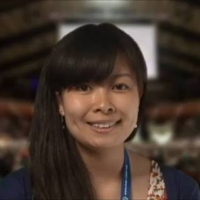
Naomi Tamura is a Japanese pop singer and songwriter who made her solo debut in 1994 with the song Jiyuu no Hashi. She is best known for singing theme songs for popular Anime series such as Yuzurenai Negai for Magic Knight Rayearth and Yuragu Koto Nai Ai for Get Backers.
Ludovico Einaudi

Ludovico Einaudi (born 23 November 1955) is an Italian contemporary classical music composer and pianist.
Although Einaudi would prefer not to be labeled as any particular type of genre, he is sometimes referred to as Minimalist. This is despite his music not sharing the key musical properties associated with minimalism. This may be due to his music possessing sparse orchestration and simplistic melodies that some may wish to refer to as 'minimalist' despite not belonging to the musical movement of Minimalism.
Einaudi's own words on the matter reflect this viewpoint, with Einaudi referring to Minimalism as "elegance and openness", despite its more formal definition as a musical movement to which he arguably does not belong.
Although Einaudi would prefer not to be labeled as any particular type of genre, he is sometimes referred to as Minimalist. This is despite his music not sharing the key musical properties associated with minimalism. This may be due to his music possessing sparse orchestration and simplistic melodies that some may wish to refer to as 'minimalist' despite not belonging to the musical movement of Minimalism.
Einaudi's own words on the matter reflect this viewpoint, with Einaudi referring to Minimalism as "elegance and openness", despite its more formal definition as a musical movement to which he arguably does not belong.
Benny Green

Benny Green
Benny Green (pianist).jpg
Photo by John Dugan
Background information
Born April 4, 1963 (age 56)
New York City, New York, U.S.
Genres Jazz
Occupation(s) Musician
Instruments Piano
Labels Criss Cross, Blue Note, Telarc, Sunnyside
Associated acts Art Blakey's Jazz Messengers
Website bennygreenmusic.com
Benny Green (born April 4, 1963) is an American hard bop jazz pianist who was a member of Art Blakey's Jazz Messengers. He has been compared to Bud Powell and Oscar Peterson in style and counts them as influences.
Contents
1 Biography
2 Discography
2.1 As leader
2.2 As sideman
3 References
4 External links
Biography
Green was born in New York City. He grew up in Berkeley, California, and studied classical piano from the age of seven. He also had an interest in jazz from an early point, as his father was a jazz tenor saxophone player. Benny Green was "discovered" by Faye Carroll, and while still in his teens worked in a quintet led by Eddie Henderson. Green attended Berkeley High School, and participated in the school's jazz ensemble. In the later years of his high school career, he had a weekly trio gig at Yoshi's, which marked his entrance to the world of professional jazz. After high school he spent time in San Francisco, but became more successful on his return to New York.
Green joined Betty Carter's band in April, 1983, and since 1991 he has led his own trio. He has recorded for Blue Note Records, Telarc, and Criss Cross Jazz.
Green frequently teaches in workshops across the United States, such as Jazz Camp West in California, and Centrum/Jazz Port Townsend in Washington. He currently resides in the United States and tours globally with the world-famous Benny Green Trio. His 2018 studio album release "Then and Now" is now available from Sunnyside Records.
Discography
As leader
Year recorded Title Label Personnel/Notes
1988 Prelude Criss Cross Quintet, with Terence Blanchard (trumpet), Javon Jackson (tenor sax), Peter Washington (bass), Tony Reedus (drums)
1988–89 In This Direction Criss Cross Trio, with Buster Williams (bass), Lewis Nash (drums)
1990 Lineage Blue Note Trio, with Ray Drummond (bass), Victor Lewis (drums)
1991 Greens Blue Note Trio, with Christian McBride (bass), Carl Allen (drums)
1991 Testifyin'!: Live at the Village Vanguard Blue Note Trio, with Christian McBride (bass), Carl Allen (drums); in concert
1992 That's Right! Blue Note Trio, with Christian McBride (bass), Carl Allen (drums)
1994 The Place to Be Blue Note Some tracks solo piano; some tracks trio, with Christian McBride (bass), Kenny Washington (drums); some tracks nonet, with Byron Stripling (trumpet), Delfeayo Marsalis (trombone), John Clark (French horn), Herb Besson (tuba), Jerry Dodgion (flute, alto flute, alto sax), Gary Smulyan (baritone sax) added
1996 Kaleidoscope Blue Note With Stanley Turrentine (tenor sax), Antonio Hart (alto sax), Russell Malone (guitar), Ron Carter (bass), Lewis Nash (drums)
1997 Oscar and Benny Telarc Quartet, with Oscar Peterson (piano), Ray Brown (bass), Gregory Hutchinson (drums)
1999 These Are Soulful Days Blue Note Trio, with Russell Malone (guitar), Christian McBride (bass)
2000 Naturally Telarc Trio, with Russell Malone (guitar), Christian McBride (bass)
2001 Green's Blues Telarc Solo piano
2002 Jazz at the Bistro Telarc Duo, with Russell Malone (guitar); in concert
2003 Bluebird Telarc Duo, with Russell Malone (guitar)
2011? Source Jazz Legacy
2013? Magic Beans Sunnyside Trio, with Peter Washington (bass), Kenny Washington (drums)
2013 Live in Santa Cruz! Sunnyside Trio, with David Wong (bass), Kenny Washington (drums); in concert
2016 Happiness! Live at Kuumbwa Sunnyside Trio, with David Wong (bass), Rodney Green (drums); in concert
2018 Then and Now Sunnyside Some tracks trio, with David Wong (bass), Kenny Washington (drums); one track quartet, with Anne Drummond (flute, alto flute) added; two tracks quintet, with Drummond, Josh Jones (percussion) added; four tracks quartet, with Veronica Swift (vocals) added
Main sources:
As sideman
With Art Blakey
Not Yet (Soul Note, 1988)
I Get a Kick Out of Bu (Soul Note, 1988)
With Bob Belden
Straight to My Heart: The Music of Sting (1989)
When the Doves Cry: The Music of Prince (1993)
With Don Braden
Quintet Time Is Now (1991)
Wish List (1991)
With Cecil Brooks III
Hangin' with Smooth (Muse, 1990)
Our Mister Brooks (2000)
With Ray Brown
Bass Face (1993)
Dont Get Sassy (1994)
Some of My Best Friends Are... (1994)
Some of My Best Friends Are... (1995)
Seven Steps to Heaven (1995)
Live at Scullers Jazz Club (1996)
SuperBass (1997)
Triple Play (1998)
Walk On (2003)
With Arnett Cobb
Tenor Tribute, Vol. 1 (1988)
Tenor Tribute, Vol. 2 (1988)
With Freddie Hubbard
Topsy - Standard Book (1989)
Live at Fat Tuesday (1991)
God Bless the Child (1998)
With Etta Jones
Reverse the Charges (Muse, 1992)
At Last (Muse, 1995)
My Gentleman Friend (Muse, 1994 )
With Ralph Moore
Round Trip (Reservoir, 1985 )
Images (Landmark, 1989)
Furthermore (Landmark, 1990)
Who It is You Are (1993)
With Houston Person
The Lion and His Pride (Muse, 1991 )
Christmas with Houston Person and Friends (Muse, 1994)
Little Houston on the Side (1999)
With Jimmy Ponder
Soul Eyes (1991)
Steel City Soul (1998)
With Jim Snidero
Mixed Bag (1987)
Blue Afternoon (1989)
While You Were Here (1991)
With Lew Tabackin
Ill Be Seeing You (1992)
What a Little Moonlight Can Do (1994)
With Jack Walrath
Out of the Tradition (Muse, 1990 )
I Am the Walrath (2000)
With others
Gary Bartz, Shadows (1991)
Block 16 Morning Sun Remixed (2002)
Betty Carter Look What I Got (1988)
Anat Cohen, Clarinetwork: Live at the Village Vanguard (2010)
Mark Elf Minor Scramble (1996)
Larry Gales Message from Monk (1990)
Tim Hagans Hub Songs: The Music of Freddie... (1997)
Jay Hoggard Little Tiger (1990)
Fred Horn Steady Freddy Collective Cuts (1995)
Jazz Futures Live in Concert (1991)
Milt Jackson Burnin in the Woodhouse (1995)
Ron Jackson Guitar Thing (1991)
Randy Johnston, Walk On (Muse, 1992)
Vince Jones One Day Spent (1991)
Kristin Korb Introducing Kristin Korb With the... (1996)
Diana Krall All for You (1995)
Michael Logan Night Out (1990)
Brian Lynch In Process (1991)
Mingus Dynasty Next Generation Performs Charles... (1991)
Amani A. W. Murray Amani A. W. Murray (1990)
Randy Napoleon Between Friends (2006)
Oscar Peterson Oscar Peterson & Benny Green (1998)
Flip Phillips Swing Is the Thing! (2000)
John Pizzarelli Dear Mr. Cole (1994)
Lisa Pollard I See Your Face Before Me (1993)
Clark Terry One on One (2000)
Steve Turre Right There (1991)
Belinda Underwood Greenspace (2008)
Bobby Watson Inventor (1989)
References
Scheinin, Richard (25 June 2013). "Review: Pianist Benny Green delivers sheer jazz joy – The Mercury News". San Jose Mercury. Retrieved 7 July 2014.
"Bio". www.bennygreen.music. 22 August 2012. Retrieved 3 July 2014.
Yanow, Scott. "Benny Green | Biography & History | AllMusic". AllMusic.
Cook, Richard; Morton, Brian (1992). The Penguin Guide to Jazz on CD, LP & Cassette (1st ed.). Penguin. p. 445. ISBN 978-0-14-015364-4.
Cook, Richard; Morton, Brian (1996). The Penguin Guide to Jazz on CD (3rd ed.). Penguin. p. 539. ISBN 978-0-14-051368-4.
Cook, Richard; Morton, Brian (2004). The Penguin Guide to Jazz on CD (7th ed.). Penguin. ISBN 978-0-14-101416-6.
Cook, Richard; Morton, Brian (2008). The Penguin Guide to Jazz Recordings (9th ed.). Penguin. p. 597. ISBN 978-0-141-03401-0.
Benny Green (pianist).jpg
Photo by John Dugan
Background information
Born April 4, 1963 (age 56)
New York City, New York, U.S.
Genres Jazz
Occupation(s) Musician
Instruments Piano
Labels Criss Cross, Blue Note, Telarc, Sunnyside
Associated acts Art Blakey's Jazz Messengers
Website bennygreenmusic.com
Benny Green (born April 4, 1963) is an American hard bop jazz pianist who was a member of Art Blakey's Jazz Messengers. He has been compared to Bud Powell and Oscar Peterson in style and counts them as influences.
Contents
1 Biography
2 Discography
2.1 As leader
2.2 As sideman
3 References
4 External links
Biography
Green was born in New York City. He grew up in Berkeley, California, and studied classical piano from the age of seven. He also had an interest in jazz from an early point, as his father was a jazz tenor saxophone player. Benny Green was "discovered" by Faye Carroll, and while still in his teens worked in a quintet led by Eddie Henderson. Green attended Berkeley High School, and participated in the school's jazz ensemble. In the later years of his high school career, he had a weekly trio gig at Yoshi's, which marked his entrance to the world of professional jazz. After high school he spent time in San Francisco, but became more successful on his return to New York.
Green joined Betty Carter's band in April, 1983, and since 1991 he has led his own trio. He has recorded for Blue Note Records, Telarc, and Criss Cross Jazz.
Green frequently teaches in workshops across the United States, such as Jazz Camp West in California, and Centrum/Jazz Port Townsend in Washington. He currently resides in the United States and tours globally with the world-famous Benny Green Trio. His 2018 studio album release "Then and Now" is now available from Sunnyside Records.
Discography
As leader
Year recorded Title Label Personnel/Notes
1988 Prelude Criss Cross Quintet, with Terence Blanchard (trumpet), Javon Jackson (tenor sax), Peter Washington (bass), Tony Reedus (drums)
1988–89 In This Direction Criss Cross Trio, with Buster Williams (bass), Lewis Nash (drums)
1990 Lineage Blue Note Trio, with Ray Drummond (bass), Victor Lewis (drums)
1991 Greens Blue Note Trio, with Christian McBride (bass), Carl Allen (drums)
1991 Testifyin'!: Live at the Village Vanguard Blue Note Trio, with Christian McBride (bass), Carl Allen (drums); in concert
1992 That's Right! Blue Note Trio, with Christian McBride (bass), Carl Allen (drums)
1994 The Place to Be Blue Note Some tracks solo piano; some tracks trio, with Christian McBride (bass), Kenny Washington (drums); some tracks nonet, with Byron Stripling (trumpet), Delfeayo Marsalis (trombone), John Clark (French horn), Herb Besson (tuba), Jerry Dodgion (flute, alto flute, alto sax), Gary Smulyan (baritone sax) added
1996 Kaleidoscope Blue Note With Stanley Turrentine (tenor sax), Antonio Hart (alto sax), Russell Malone (guitar), Ron Carter (bass), Lewis Nash (drums)
1997 Oscar and Benny Telarc Quartet, with Oscar Peterson (piano), Ray Brown (bass), Gregory Hutchinson (drums)
1999 These Are Soulful Days Blue Note Trio, with Russell Malone (guitar), Christian McBride (bass)
2000 Naturally Telarc Trio, with Russell Malone (guitar), Christian McBride (bass)
2001 Green's Blues Telarc Solo piano
2002 Jazz at the Bistro Telarc Duo, with Russell Malone (guitar); in concert
2003 Bluebird Telarc Duo, with Russell Malone (guitar)
2011? Source Jazz Legacy
2013? Magic Beans Sunnyside Trio, with Peter Washington (bass), Kenny Washington (drums)
2013 Live in Santa Cruz! Sunnyside Trio, with David Wong (bass), Kenny Washington (drums); in concert
2016 Happiness! Live at Kuumbwa Sunnyside Trio, with David Wong (bass), Rodney Green (drums); in concert
2018 Then and Now Sunnyside Some tracks trio, with David Wong (bass), Kenny Washington (drums); one track quartet, with Anne Drummond (flute, alto flute) added; two tracks quintet, with Drummond, Josh Jones (percussion) added; four tracks quartet, with Veronica Swift (vocals) added
Main sources:
As sideman
With Art Blakey
Not Yet (Soul Note, 1988)
I Get a Kick Out of Bu (Soul Note, 1988)
With Bob Belden
Straight to My Heart: The Music of Sting (1989)
When the Doves Cry: The Music of Prince (1993)
With Don Braden
Quintet Time Is Now (1991)
Wish List (1991)
With Cecil Brooks III
Hangin' with Smooth (Muse, 1990)
Our Mister Brooks (2000)
With Ray Brown
Bass Face (1993)
Dont Get Sassy (1994)
Some of My Best Friends Are... (1994)
Some of My Best Friends Are... (1995)
Seven Steps to Heaven (1995)
Live at Scullers Jazz Club (1996)
SuperBass (1997)
Triple Play (1998)
Walk On (2003)
With Arnett Cobb
Tenor Tribute, Vol. 1 (1988)
Tenor Tribute, Vol. 2 (1988)
With Freddie Hubbard
Topsy - Standard Book (1989)
Live at Fat Tuesday (1991)
God Bless the Child (1998)
With Etta Jones
Reverse the Charges (Muse, 1992)
At Last (Muse, 1995)
My Gentleman Friend (Muse, 1994 )
With Ralph Moore
Round Trip (Reservoir, 1985 )
Images (Landmark, 1989)
Furthermore (Landmark, 1990)
Who It is You Are (1993)
With Houston Person
The Lion and His Pride (Muse, 1991 )
Christmas with Houston Person and Friends (Muse, 1994)
Little Houston on the Side (1999)
With Jimmy Ponder
Soul Eyes (1991)
Steel City Soul (1998)
With Jim Snidero
Mixed Bag (1987)
Blue Afternoon (1989)
While You Were Here (1991)
With Lew Tabackin
Ill Be Seeing You (1992)
What a Little Moonlight Can Do (1994)
With Jack Walrath
Out of the Tradition (Muse, 1990 )
I Am the Walrath (2000)
With others
Gary Bartz, Shadows (1991)
Block 16 Morning Sun Remixed (2002)
Betty Carter Look What I Got (1988)
Anat Cohen, Clarinetwork: Live at the Village Vanguard (2010)
Mark Elf Minor Scramble (1996)
Larry Gales Message from Monk (1990)
Tim Hagans Hub Songs: The Music of Freddie... (1997)
Jay Hoggard Little Tiger (1990)
Fred Horn Steady Freddy Collective Cuts (1995)
Jazz Futures Live in Concert (1991)
Milt Jackson Burnin in the Woodhouse (1995)
Ron Jackson Guitar Thing (1991)
Randy Johnston, Walk On (Muse, 1992)
Vince Jones One Day Spent (1991)
Kristin Korb Introducing Kristin Korb With the... (1996)
Diana Krall All for You (1995)
Michael Logan Night Out (1990)
Brian Lynch In Process (1991)
Mingus Dynasty Next Generation Performs Charles... (1991)
Amani A. W. Murray Amani A. W. Murray (1990)
Randy Napoleon Between Friends (2006)
Oscar Peterson Oscar Peterson & Benny Green (1998)
Flip Phillips Swing Is the Thing! (2000)
John Pizzarelli Dear Mr. Cole (1994)
Lisa Pollard I See Your Face Before Me (1993)
Clark Terry One on One (2000)
Steve Turre Right There (1991)
Belinda Underwood Greenspace (2008)
Bobby Watson Inventor (1989)
References
Scheinin, Richard (25 June 2013). "Review: Pianist Benny Green delivers sheer jazz joy – The Mercury News". San Jose Mercury. Retrieved 7 July 2014.
"Bio". www.bennygreen.music. 22 August 2012. Retrieved 3 July 2014.
Yanow, Scott. "Benny Green | Biography & History | AllMusic". AllMusic.
Cook, Richard; Morton, Brian (1992). The Penguin Guide to Jazz on CD, LP & Cassette (1st ed.). Penguin. p. 445. ISBN 978-0-14-015364-4.
Cook, Richard; Morton, Brian (1996). The Penguin Guide to Jazz on CD (3rd ed.). Penguin. p. 539. ISBN 978-0-14-051368-4.
Cook, Richard; Morton, Brian (2004). The Penguin Guide to Jazz on CD (7th ed.). Penguin. ISBN 978-0-14-101416-6.
Cook, Richard; Morton, Brian (2008). The Penguin Guide to Jazz Recordings (9th ed.). Penguin. p. 597. ISBN 978-0-141-03401-0.
Alexander Rybak
Alexander Igorevich Rybak (Russian: Александр Игоревич Рыбак) or Alyaxandr Iharavich Rybak (Belarusian: Аляксандр Ігаравіч Рыбак; born 13 May 1986), is a Belarusian-Norwegian singer-composer, violinist, pianist and actor.[1
Himig Heswita

Himig Heswita Musical group Songs Hesus Ng Aking Buhay The Best of Himig Heswita · 2015 I Love the Lord O, Bayan Ng Diyos · 2015 Ito ang Araw 35th Anniversary Commemorative Album · 2016
Pond, H.Auge
Rune Hauge is known to be one of Norway's leading roots artists, guitarists and singer/songwriters. He's appeared on numerous recordings on guitar, vocals and ...
The Real Book 3

The Real Book may refer to a number of compilations of lead sheets for jazz standards. It usually refers to the first volume of a series of books transcribed and collated by Berklee College of Music students during the 1970s.
Pink Floyd

Pink Floyd are an English rock band from Cambridge. The band initially earned recognition for their psychedelic and space rock music, and, as they evolved, for their progressive rock music. Pink Floyd are known for philosophical lyrics, sonic experimentation, innovative album cover art, and elaborate live shows. One of rock music's most successful acts, the group have sold over 200 million albums worldwide including 74.5 million albums in the United States alone. Pink Floyd have influenced progressive rock artists of the 1970s such as Genesis and Yes; and contemporary artists such as Nine Inch Nails and Dream Theater.
Pink Floyd had moderate mainstream success and were one of the most popular bands in the London underground music scene in the late 1960s as a psychedelic band led by Syd Barrett. However, Barrett's erratic behaviour eventually forced his colleagues to replace him with guitarist and singer David Gilmour. After Barrett's departure, singer and bass player Roger Waters gradually became the dominant and driving force in the group by the late-1970s, until his eventual departure from the group in 1985. The band recorded several albums, achieving worldwide success with The Dark Side of the Moon (1973), Wish You Were Here (1975), Animals (1977), and The Wall (1979).
In 1985, Waters declared Pink Floyd "a spent force", but the remaining members, led by Gilmour, continued recording and touring under the name Pink Floyd. Waters sued them for the name and eventually they reached a settlement out of court, under which Gilmour, Mason and Wright would continue as Pink Floyd. They again enjoyed worldwide success with A Momentary Lapse of Reason (1987) and The Division Bell (1994). Waters performed with the band for the first time in 24 years on 2 July 2005 at the London Live 8 concert.
Pink Floyd had moderate mainstream success and were one of the most popular bands in the London underground music scene in the late 1960s as a psychedelic band led by Syd Barrett. However, Barrett's erratic behaviour eventually forced his colleagues to replace him with guitarist and singer David Gilmour. After Barrett's departure, singer and bass player Roger Waters gradually became the dominant and driving force in the group by the late-1970s, until his eventual departure from the group in 1985. The band recorded several albums, achieving worldwide success with The Dark Side of the Moon (1973), Wish You Were Here (1975), Animals (1977), and The Wall (1979).
In 1985, Waters declared Pink Floyd "a spent force", but the remaining members, led by Gilmour, continued recording and touring under the name Pink Floyd. Waters sued them for the name and eventually they reached a settlement out of court, under which Gilmour, Mason and Wright would continue as Pink Floyd. They again enjoyed worldwide success with A Momentary Lapse of Reason (1987) and The Division Bell (1994). Waters performed with the band for the first time in 24 years on 2 July 2005 at the London Live 8 concert.
Mozart

Wolfgang Amadeus Mozart, full name Johann Chrysostom Wolfgang Amadeus Mozart (27 January 1756 â 5 December 1791) was a prolific and influential composer of the Classical era. His over 600 compositions include works widely acknowledged as pinnacles of symphonic, concertante, chamber, piano, operatic, and choral music. Mozart is among the most enduringly popular of classical composers, and many of his works are part of the standard concert repertoire.
Mozart's music, like Haydn's, stands as an archetypal example of the Classical style. His works spanned the period during which that style transformed from one exemplified by the style galant to one that began to incorporate some of the contrapuntal complexities of the late Baroque, complexities against which the galant style had been a reaction. Mozart's own stylistic development closely paralleled the development of the classical style as a whole. In addition, he was a versatile composer and wrote in almost every major genre, including symphony, opera, the solo concerto, chamber music including string quartet and string quintet, and the piano sonata. While none of these genres were new, the piano concerto was almost single-handedly developed and popularized by Mozart. He also wrote a great deal of religious music, including masses; and he composed many dances, divertimenti, serenades, and other forms of light entertainment.
The central traits of the classical style can be identified in Mozart's music. Clarity, balance, and transparency are hallmarks of his work.
Mozart's music, like Haydn's, stands as an archetypal example of the Classical style. His works spanned the period during which that style transformed from one exemplified by the style galant to one that began to incorporate some of the contrapuntal complexities of the late Baroque, complexities against which the galant style had been a reaction. Mozart's own stylistic development closely paralleled the development of the classical style as a whole. In addition, he was a versatile composer and wrote in almost every major genre, including symphony, opera, the solo concerto, chamber music including string quartet and string quintet, and the piano sonata. While none of these genres were new, the piano concerto was almost single-handedly developed and popularized by Mozart. He also wrote a great deal of religious music, including masses; and he composed many dances, divertimenti, serenades, and other forms of light entertainment.
The central traits of the classical style can be identified in Mozart's music. Clarity, balance, and transparency are hallmarks of his work.
Bach

Johann Sebastian Bach (31 March 1685 – 28 July 1750) was a German composer and organist whose sacred and secular works for choir, orchestra, and solo instruments drew together the strands of the Baroque period and brought it to its ultimate maturity. Although he introduced no new forms, he enriched the prevailing German style with a robust contrapuntal technique, an unrivalled control of harmonic and motivic organisation in composition for diverse musical forces, and the adaptation of rhythms and textures from abroad, particularly Italy and France.
Revered for their intellectual depth and technical and artistic beauty, Bach's works include the Brandenburg concertos; the Goldberg Variations; the English Suites, French Suites, Partitas, and Well-Tempered Clavier; the Mass in B Minor; the St. Matthew Passion; the St. John Passion; The Musical Offering; The Art of Fugue; the Sonatas and Partitas for violin solo; the Cello Suites; more than 200 surviving cantatas; and a similar number of organ works, including the celebrated Toccata and Fugue in D Minor.
While Bach's fame as an organist was great during his lifetime, he was not particularly well-known as a composer. His adherence to Baroque forms and contrapuntal style was considered "old-fashioned" by his contemporaries, especially late in his career when the musical fashion tended towards Rococo and later Classical styles. A revival of interest and performances of his music began early in the 19th century, and he is now widely considered to be one of the greatest composers in the Western tradition.
Revered for their intellectual depth and technical and artistic beauty, Bach's works include the Brandenburg concertos; the Goldberg Variations; the English Suites, French Suites, Partitas, and Well-Tempered Clavier; the Mass in B Minor; the St. Matthew Passion; the St. John Passion; The Musical Offering; The Art of Fugue; the Sonatas and Partitas for violin solo; the Cello Suites; more than 200 surviving cantatas; and a similar number of organ works, including the celebrated Toccata and Fugue in D Minor.
While Bach's fame as an organist was great during his lifetime, he was not particularly well-known as a composer. His adherence to Baroque forms and contrapuntal style was considered "old-fashioned" by his contemporaries, especially late in his career when the musical fashion tended towards Rococo and later Classical styles. A revival of interest and performances of his music began early in the 19th century, and he is now widely considered to be one of the greatest composers in the Western tradition.
David Foster

David Walter Foster, OC, OBC (born November 1, 1949), is a Canadian musician, record producer, composer, singer, songwriter and arranger, noted for discovering singers Celine Dion, Josh Groban, and Michael Bublé and for producing some of the most successful artists in the world.
Irene Cara

Irene Cara Escalera (March 18, 1959) is an American singer. Cara won an Academy Award in 1984 in the category of Best Original Song for co-writing "Flashdance... What a Feeling". She is best known for her recordings of the songs "Fame" and "Flashdance... What a Feeling". She also starred in the 1980 film version of Fame.
Cara's father, Gaspar Cara (died in 1994), was an African-American and Puerto Rican. Her mother, Louise Escalera, is of French and Cuban descent. She has two sisters and two brothers.
She married Hollywood stuntman Conrad Palmisano in 1986. They divorced in 1991.
She lives in Florida and continues work in preparation for her band Hot Caramel's album. She also has her own production studio. She appeared in season 2 of CMT's reality show Gone Country, but left the show realizing she “was not cut out for reality television.”
Cara's father, Gaspar Cara (died in 1994), was an African-American and Puerto Rican. Her mother, Louise Escalera, is of French and Cuban descent. She has two sisters and two brothers.
She married Hollywood stuntman Conrad Palmisano in 1986. They divorced in 1991.
She lives in Florida and continues work in preparation for her band Hot Caramel's album. She also has her own production studio. She appeared in season 2 of CMT's reality show Gone Country, but left the show realizing she “was not cut out for reality television.”
Ben E. King

Ben E. King (born Benjamin Earl Nelson on September 28, 1938, in Henderson, North Carolina) became a famous soul singer of the 1960's. He is probably best known as the singer and co-composer of "Stand by Me," a U.S. top 10 hit in both 1961 and 1987 and a #1 hit in the UK in 1987, and as one of the principal lead singers of the legendary R&B vocal group, The Drifters.
Ahmet Ertegun once stated that King had one of the greatest voices in soul history. Throughout King's career he earned five number one hits, which were "There Goes My Baby", "Save The Last Dance For Me", "Stand By Me", "Supernatural Thing", and the 1986 re-issue of "Stand By Me". He also earned twelve Top 10 hits from 1959 to 1986.
Currently, King is active in his charitable foundation, the Stand By Me Foundation.
Ahmet Ertegun once stated that King had one of the greatest voices in soul history. Throughout King's career he earned five number one hits, which were "There Goes My Baby", "Save The Last Dance For Me", "Stand By Me", "Supernatural Thing", and the 1986 re-issue of "Stand By Me". He also earned twelve Top 10 hits from 1959 to 1986.
Currently, King is active in his charitable foundation, the Stand By Me Foundation.
Linkin Park
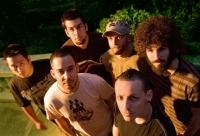
Linkin Park is an American rock band from Agoura Hills, California. Since their formation in 1996, the band has sold more than 50 million albums and won two Grammy Awards. They achieved mainstream success with their debut album, Hybrid Theory, which was certified Diamond by the RIAA in 2005. Their following studio album, Meteora, continued the band's success, topping the Billboard 200’s album charts in 2003, and was followed by extensive touring and charity work around the world.
Recognized for their adaptation of the nu metal and rap rock genre into a radio-friendly yet densely-layered style in Hybrid Theory and Meteora, the band moved away from this and explored a variety of other genres in their latest studio album, Minutes to Midnight. The album topped the Billboard charts and had the third best debut week of any album that year. They are also known for their several collaborations, most notably with rapper Jay-Z in their mash-up album Collision Course, and many other artists on Reanimation.
Recognized for their adaptation of the nu metal and rap rock genre into a radio-friendly yet densely-layered style in Hybrid Theory and Meteora, the band moved away from this and explored a variety of other genres in their latest studio album, Minutes to Midnight. The album topped the Billboard charts and had the third best debut week of any album that year. They are also known for their several collaborations, most notably with rapper Jay-Z in their mash-up album Collision Course, and many other artists on Reanimation.
Bernard Dewagtere
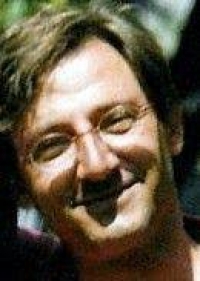
Doctor of musicology, conductor and composer, I manage ACCELERANDO, vocational musical school
Inspector Gadget

Inspector Gadget is a media franchise that began in 1983 with the DIC Entertainment animated television series Inspector Gadget. Since the original series, there have been many spin-offs based on the show, including additional animated series, video games, and films.The franchise follows the adventures of a powerful but dimwitted cyborg police inspector named Gadget as he investigates the criminal schemes of Dr. Claw and his organization, M.A.D., and fruitlessly attempts to stop him. However, neither side is aware that it is Gadget's niece, Penny, and her dog, Brain, who are truly responsible for thwarting M.A.D.
Brandon Flowers

Brandon Richard Flowers is an American musician, singer, songwriter, and philanthropist, best known as the lead singer and keyboardist of the Las Vegas-based rock band The Killers. In addition to his work with The Killers, Flowers has released two solo albums, Flamingo and The Desired Effect.
Giacomo Meyerbeer
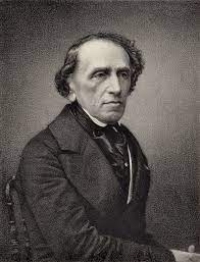
Giacomo Meyerbeer (born Jacob Liebmann Beer; 5 September 1791 – 2 May 1864) was a German opera composer of Jewish birth, "the most frequently performed opera composer during the nineteenth century, linking Mozart and Wagner". With his 1831 opera Robert le diable and its successors, he gave the genre of grand opera 'decisive character'. Meyerbeer's grand opera style was achieved by his merging of German orchestra style with Italian vocal tradition. These were employed in the context of sensational and melodramatic libretti created by Eugène Scribe and were enhanced by the up-to-date theatre technology of the Paris Opéra.
JAvier Dominguez MIllan

JAVIER DOMÍNGUEZ MILLÁN Director e profesor de Clarinete. Nace en Belesar no ano 1975. Licenciado en Música na especialidade de Clarinete polo Conservatorio ...
Bruno Mars

Peter Gene Hernandez (born October 8, 1985), better known by his stage name Bruno Mars, is an American singer-songwriter and music producer. Raised in Honolulu, Hawaii by a family of musicians, Mars began making music at a young age. After performing in various musical venues in his hometown throughout his childhood, he decided to pursue a musical career. Mars began producing songs for other artists, joining production team The Smeezingtons.
He became recognized as a solo artist after lending his vocals and co-writing the hooks for the songs "Nothin' on You" by B.o.B, and "Billionaire" by Travie McCoy. He also co-wrote the hits "Right Round" by Flo Rida featuring Kesha, "Wavin' Flag" by K'naan, and "Fuck You!" by Cee Lo Green. In October 2010, he released his debut album, Doo-Wops & Hooligans. Anchored by the singles "Just the Way You Are" and "Grenade", the album peaked at number three on the Billboard 200. He has been nominated for seven Grammys at the 53rd Grammy Awards, which will be held on February 13, 2011.
He became recognized as a solo artist after lending his vocals and co-writing the hooks for the songs "Nothin' on You" by B.o.B, and "Billionaire" by Travie McCoy. He also co-wrote the hits "Right Round" by Flo Rida featuring Kesha, "Wavin' Flag" by K'naan, and "Fuck You!" by Cee Lo Green. In October 2010, he released his debut album, Doo-Wops & Hooligans. Anchored by the singles "Just the Way You Are" and "Grenade", the album peaked at number three on the Billboard 200. He has been nominated for seven Grammys at the 53rd Grammy Awards, which will be held on February 13, 2011.
Evanescence

Evanescence is an American rock band founded in Little Rock, Arkansas in 1995 by singer/pianist Amy Lee and guitarist Ben Moody.
After recording two private EPs and a demo CD named Origin, with the help of Bigwig Enterprises in 2000, the band released their first full-length album, Fallen, on Wind-up Records in 2003. Fallen sold more than 15 million copies worldwide and helped the band win two Grammy Awards. A year later, Evanescence released their first live album, Anywhere but Home, which sold more than one million copies worldwide. In 2006, the band released their second studio album, The Open Door, which has sold more than four million copies.
The band has suffered several line-up changes, including co-founder Moody leaving in 2003, followed by guitarist John LeCompt and drummer Rocky Gray in 2007. Lee is now the only original member of Evanescence remaining in the band.
After recording two private EPs and a demo CD named Origin, with the help of Bigwig Enterprises in 2000, the band released their first full-length album, Fallen, on Wind-up Records in 2003. Fallen sold more than 15 million copies worldwide and helped the band win two Grammy Awards. A year later, Evanescence released their first live album, Anywhere but Home, which sold more than one million copies worldwide. In 2006, the band released their second studio album, The Open Door, which has sold more than four million copies.
The band has suffered several line-up changes, including co-founder Moody leaving in 2003, followed by guitarist John LeCompt and drummer Rocky Gray in 2007. Lee is now the only original member of Evanescence remaining in the band.
John Barry
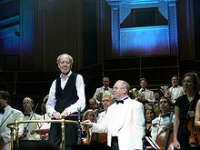
John Barry, OBE (born John Barry Prendergast on 3 November 1933 in York, England) is an English film score composer. He is best known for composing 11 James Bond soundtracks and was hugely influential on the 007 series' distinctive style.
 Sheet Music Exchange is a web site for those who wants to access popular sheet music easily,
letting them download the sheet music for free for trial purposes.
It's completely free to download and try the listed sheet music, but you have to delete the files after 24 hours of trial period.
Don't forget, if you like the piece of music you have just learned playing,
treat the artist with respect, and go buy the original sheet music.
Sheet Music Exchange is a web site for those who wants to access popular sheet music easily,
letting them download the sheet music for free for trial purposes.
It's completely free to download and try the listed sheet music, but you have to delete the files after 24 hours of trial period.
Don't forget, if you like the piece of music you have just learned playing,
treat the artist with respect, and go buy the original sheet music.